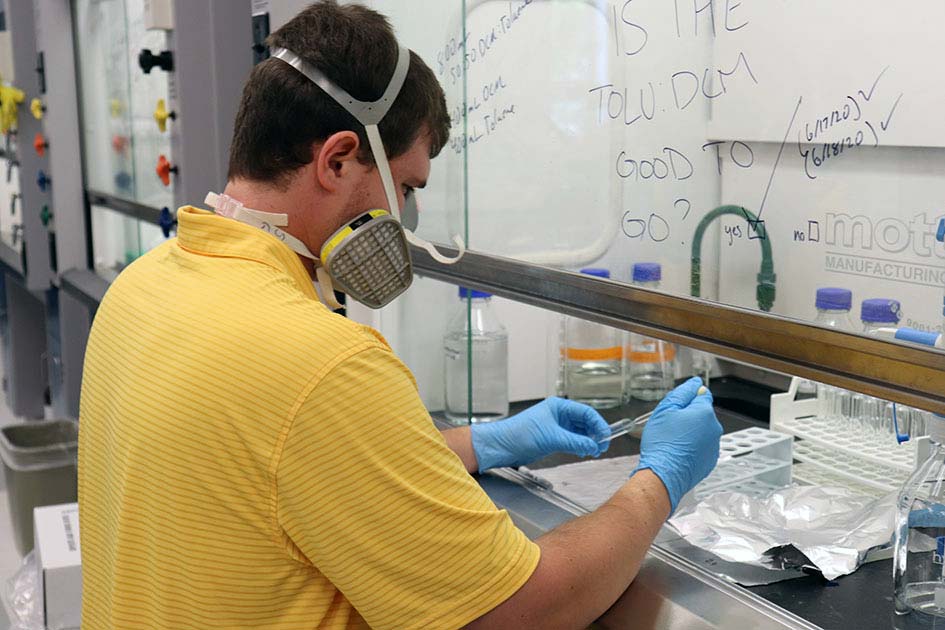Drummond speaks at 5th international congress
October 29, 2020

Sammy Drummond is making the most of his college career. He’s carrying a full course load, playing baseball, and conducting groundbreaking research in his senior year at Dakota State. This fall he has been asked to highlight some of that research with the scientific community around the world.
“I’ve had a bunch of great students in my tenure here,” said Dr. Michael Gaylor, “but none have been willing to make the sacrifices that he is making with enthusiasm to maximize his academic and research achievements. This will ensure that he is maximally competitive for the top U.S. doctoral programs to which he’ll begin applying this fall.”
Drummond, a physical science major from Australia, is busy continuing research started earlier in the year which deals with the conversion of “compounds found throughout the universe into biologically meaningful substances under conditions that are similar to places like Mars,” Drummond said.
Breaking it down, he explained, “Mostly, we’re hoping to understand how these reactions can occur on various mineral catalysts and under different planetary conditions.”
Drummond recently presented a paper at the first-ever Dakota State-NASA JPL Mini-Workshop on Origins of Life in Prebiotic Planetary Environments. Just an undergraduate, he presented to Ph.D.-level scientists. This presentation inspired a new collaborative research effort with the NASA JPL Planetary Origins and Habitability Lab.
The paper focused on research that uses UV radiation as an energy source. Over the summer, Drummond conducted experiments in which UV lamps indoors and the sun outdoors were used as an energy source, he shared. “We were able to understand how minerals protect compounds from highly dangerous UV radiation.”
Drummond will present some of this research at the 5th International Congress on Astrobiology virtually in November.
“Invitations for undergraduates to present at large international congresses like this are unheard of, so it’s a real big deal for our little program,” Gaylor explained.
In addition to his continued research in astrobiology, Drummond was also awarded a student mentored research initiative in computational physics; he will be looking into shielding for nuclear thermal propulsion.
Drummond hopes to attend graduate school for physics or engineering. “No matter where I end up, I just want to answer as many questions as I can, because if this has taught me anything, it’s that when one question is answered another five come up.”
